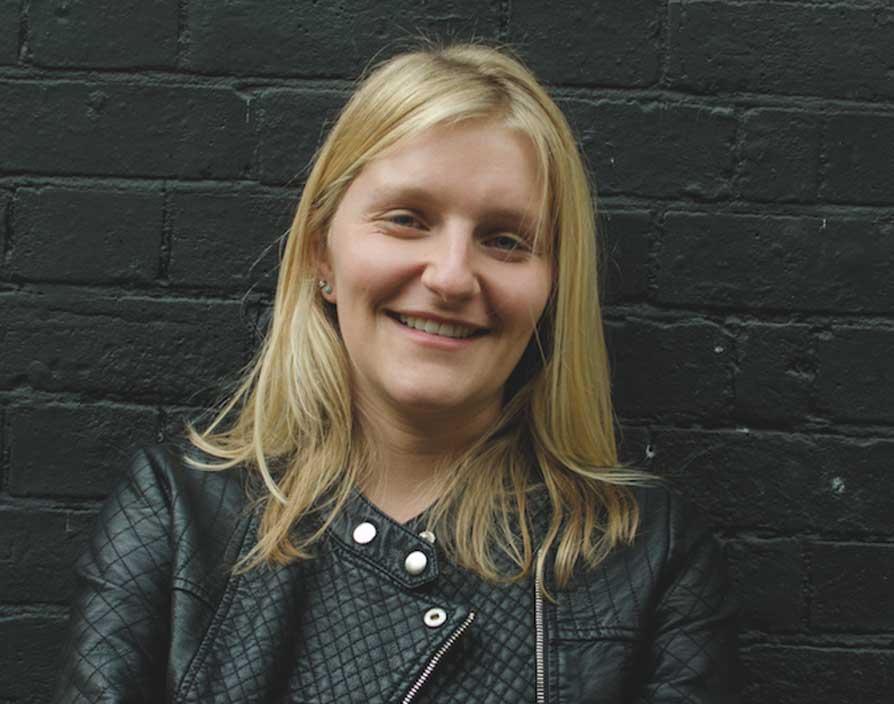The UK produces 15 million tonnes of food waste each year according to Love Food Hate Waste, the awareness-generating campaign. And a lot of this comes from discarded food thrown away by supermarkets, wholesalers or farmers because it’s not pretty enough, not straight enough or simply just because there’s a glut. This bothered Ilana Taub and Michael Minch-Dixon, who were working in corporate jobs at the time and had always been interested in sustainability. But instead of merely getting miffed, they decided to do something about it by founding Snact: a line of snacks made from surplus ingredients that would otherwise be chucked out. “We wanted to contribute to a tastier, greener and fairer food system and create a business that did things differently, from the way we sourced our ingredients to what we paid our suppliers,” says Taub.
After stumbling across an old recipe shared by food historian Monica Askay for a ‘fruit leather’, Taub realised that squishing and then dehydrating the fruit would offer the ideal solution for making tasty treats out of unattractive produce. “The added benefit was that it didn’t matter how bruised or sad the fruit looked to begin with, it all came out looking uniform,” says Taub. The entrepreneurs adapted Askay’s recipe and contacted wholesale traders around London to ask them to set aside fruit that was on the brink of being tossed out. They also swapped the fruit leather moniker for the more appetising ‘fruit jerky’, which they started to sell at local markets and events.
But while the co-founders were passionate about sustainability, they lacked experience in food manufacturing on an industrial scale and had never run a business. “We didn’t even know what terms we needed to Google because we had no point of reference,” says Taub. And things didn’t always go according to plan in the early days. “I remember the first time we rented a professional kitchen from a vegan bakery to do a massive batch,” Taub recalls. “The oven wasn’t set up right and everything came out burned. It was a disaster; we had to throw the whole batch away and were up until 4am making a new one.”
So rather than jumping in with both feet, they decided to keep their day jobs and go part-time so they could swot up. With an internal motto of ‘give a shit and get shit done’ spurring them on, for a year the duo grew Snact organically until they finally decided they needed an injection of funds to leap to the next phase. Snact’s maiden crowdfunding campaign – which would be the first of three successful fundraising rounds – smashed its target and raised £13,516. The investment went towards securing a manufacturer, developing a packaging solution and doing some initial marketing and brand building activity.
More than that though, it created a community of Snactivists: people who share the company’s mission, engage with the brand on social media and even throw on a Snact T-shirt to work at events. “People have been with us since the start, donating as little as £10 and upwards,” says Taub. “Crowdfunding’s been an effective way to start a community.” And its community has come to form an ecosystem with other businesses and organisations with a sustainable mission. Snact is part of the Food Surplus Entrepreneurs Network and regularly connects with other food startups in and around London.

All of this helped build momentum and, in 2015, Taub and Minch-Dixon looked at each other and had an ‘I got this’ moment. “We’d learned enough about food manufacturing and we felt that if we kept doing it on the side, it wasn’t going to go anywhere,” says Taub. “So we went all in.” It was time to take the training wheels off and throw themselves into the venture full-time.
Given that we’re living in an era when authenticity is the hottest currency for brands, many businesses have an ethical glaze applied on top. But Snact’s model has been created around its founders’ core beliefs from the outset. “We never make bold claims or pretend our snacks are the healthiest thing you’ll eat; we just share the facts about our methods and how much waste we prevent,” says Taub. “People respond to that.” Whether it’s paying event staff the living wage or ensuring its snacks are free from preservatives or added sugar, Snact ensures this ethos runs through all its operations. “We don’t want to be preachy but we do hope to show other entrepreneurs that you can make a profit while being responsible,” she adds.
But sometimes being a good guy has meant making tough calls. Taub and Minch-Dixon chose not to appear on Dragons’ Den because they didn’t want a major investor calling the shots and they also pulled out of a competition sponsored by Shell, the oil and gas company, in the early days. “I didn’t want Snact to be associated with a company that was responsible for so many bad things,” Taub explains.
And this isn’t the only area in which Snact is tearing up the rulebook: the way it manages the supply chain isn’t exactly conventional either. While buying surplus fruit is cheaper, supply patterns are much less predictable: a farmer might have 2,000 tonnes of unwanted apples one year but none the next. It would be easier – and cheaper – to buy ingredients from a single supplier and process the fruit overseas but it’s important to the founders that they minimise the environmental footprint of their products. “Clocking up air miles for the sake of a wider margin just wasn’t an option,” says Taub.
But at the end of the day, Snact isn’t a social enterprise; it’s a profit-generating company with a social mission built into it. “We have to be financially sustainable,” says Taub. “If we don’t make money from what we sell, we won’t last long.” Business, as they’ve discovered, is often about compromise and Snact’s founders are becoming more comfortable with the idea of becoming a big player. “At the start, we were a bit wary of the larger supermarkets, especially since some people associate them with a lot of negative aspects of the food system,” she adds. “But we realised that if we want to reach people and change the food system, we had to work with big business.” And so these days you can order Snact’s products through retailers like Ocado, the online supermarket, which got the startup’s seal of approval because of the way it supports small-scale suppliers.
Taub also sees Snact’s sustainable credentials as its biggest selling point. “While you get many juice and coffee brands that pay attention to provenance, there aren’t many snack companies doing that,” she notes. “If we get it right, we could grow quite a bit – though we’ll never grow at the pace of a tech startup, of course.” The entrepreneur also believes the business is scaleable and envisions being able to replicate the model in other parts of the country or even Europe and the US, with local Snactivists sourcing produce from nearby suppliers while using branding and recipes from Snact’s head office. The range doesn’t need to be limited to fruit either: Taub is currently working with a food technologist to develop snacks made from surplus grain and veggies too. “There’s so much food waste around the world that we’ve barely even made a dent yet, so there’s a lot of room to grow,” she says.
Snact may have timed it perfectly too. “People have become a lot more aware about food waste and consumers want healthier snacks,” Taub says. For their part, supermarkets have introduced ranges celebrating real fruit with real curves and Tesco has just launched a crowdfunding platform dedicated to food startups. As people demand more transparency from food brands, Snact’s straightforward approach is likely to go down very well indeed.
But with two rounds of investment under their belts, plus a crowdfunding round and healthy sales, how would Taub cope with graduating from scrappy startup to being a global food business? “I’m not sure, I’ve never been the head of a big company, although I’d like to think we’ll always stay true to our initial values,” she says. “We’ve got a lot of the pieces of the puzzle in place already; it’s about getting the timing right to make our next move.” ![]()
Share via:








































